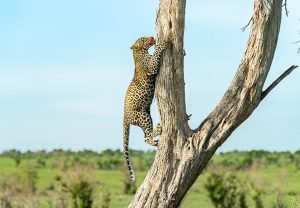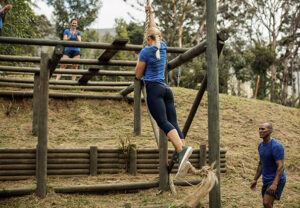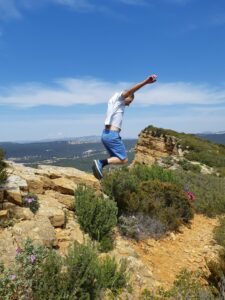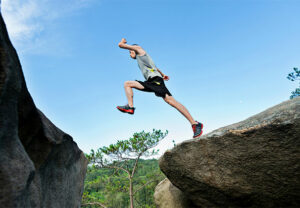Physical activity is a tool of nature
|
 In nature, all living beings develop physically through instinctive gestures of movement, work, play, or defense. In nature, all living beings develop physically through instinctive gestures of movement, work, play, or defense.
The man did not need “physical education” as long as he was dedicated to his daily survival and safety.
His physical development was through interaction with his environment, by engaging in useful physical activities for which his body has adapted throughout history. Nature’s most effective drivers of progression are need, fun, and facing difficulties.
Natural physical education, a modern need
|
Our current lifestyle, comfort and sedentary activities cause a decrease in our physical
Our natural need for movement is no longer satisfied. To maintain our health and our capacities, we must now, voluntarily, practice physical activity, as often as possible.
Many activities have arisen from this need. However, many recent disciplines have revealed shortcomings: repeated injuries, exhausting mental commitment, race for performance or aesthetics, etc. Many get discouraged, or notice an imbalance: loss of flexibility, lack of coordination, muscle imbalance, loss of explosiveness in favor of cardio, etc.
Some of these activities are therefore insufficient, or sometimes counterproductive and have no educational vocation. Our point of view is that the healthiest way to maintain and develop physically is to be as close as possible to natural physical activity: complete and rewarding.
Moreover, if modern disciplines are often based on will and discipline, we prefer a more natural pedagogy: challenge, game, group emulation. We are always more assiduous when we have fun than when we force ourselves.
The Hébert Method meets this need for natural physical activity. It is based on 3 simple principles:
A complete system:
3 axes
|
|
|
 Natural training uses all the gestures specific to humans: walking, running, jumping, climbing, throwing, etc… while producing a dose of activity close to that of a full day of life in the great outdoors. Natural training uses all the gestures specific to humans: walking, running, jumping, climbing, throwing, etc… while producing a dose of activity close to that of a full day of life in the great outdoors.
The multitude of natural and utilitarian exercises ensures integral physical development: cardio-respiratory capacity, musculature, speed, skill, balance, agility, explosiveness, etc.
Outdoor practice allows you to enjoy the benefits of air, water and sun, and hardens the body to cold or heat, strengthening natural immunity.
Group practice in a spirit of mutual aid and play responds to our need for social contact, belonging, pleasure, and a feeling of usefulness and meaning.
|
|
 By confronting real situations during training, you develop energy, courage, willpower, composure and all the other mental qualities. Jumping real obstacles, carrying out more or less difficult climbs, balancing at height, experiencing struggles and defensive situations, are all challenges that strengthen us. By confronting real situations during training, you develop energy, courage, willpower, composure and all the other mental qualities. Jumping real obstacles, carrying out more or less difficult climbs, balancing at height, experiencing struggles and defensive situations, are all challenges that strengthen us.
The exercises are always adapted to individual abilities, in safety, but it is the challenge and emulation of the group that help us push our limits.
This training also has a concrete utility, giving us significant capacities in the event of an emergency, stressful, or perilous, even dramatic situation (fire, accident, natural disaster, etc.)
|
 What meaning should be given to its practice? An efficient physique and a strong mind can serve only for one’s own pleasure, or even for negative ends for one who has a harmful moral sense. We seek to give a benevolent meaning to our practice. What meaning should be given to its practice? An efficient physique and a strong mind can serve only for one’s own pleasure, or even for negative ends for one who has a harmful moral sense. We seek to give a benevolent meaning to our practice.
Natural training moves away from any spirit of competition. Instead, it incorporates cooperative and supportive situations into each session, which develop a positive orientation to practice.
Mutual aid, respect, dedication, are values that are transmitted through group training.
|
|

- In the physical realm, strength is all about getting the most efficient result, and involves all abilities: endurance, muscular strength, speed, dexterity, etc. Go far, climb high, lift heavy, throw precisely…
- In the mental domain, strength consists of possessing energy, will, courage, determination, etc. A strong person is one who dares and succeeds despite adversity.
- In the ethical domain, it is the moral force to do useful and beneficial action
True strength, according to Georges Hébert, is the result of these three forces.

« Be strong to be useful »
Georges HÉBERT
A good example of training (A. Fain – Brazil)
|
|
|
|
|